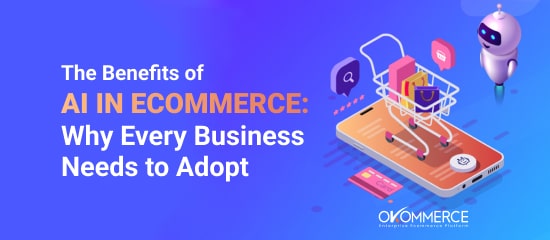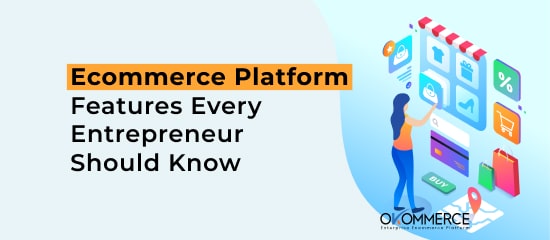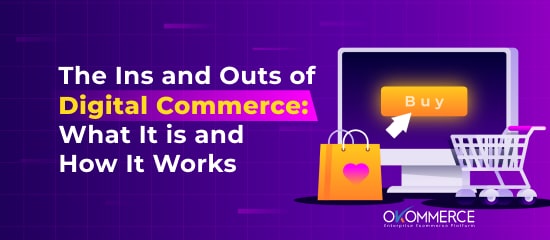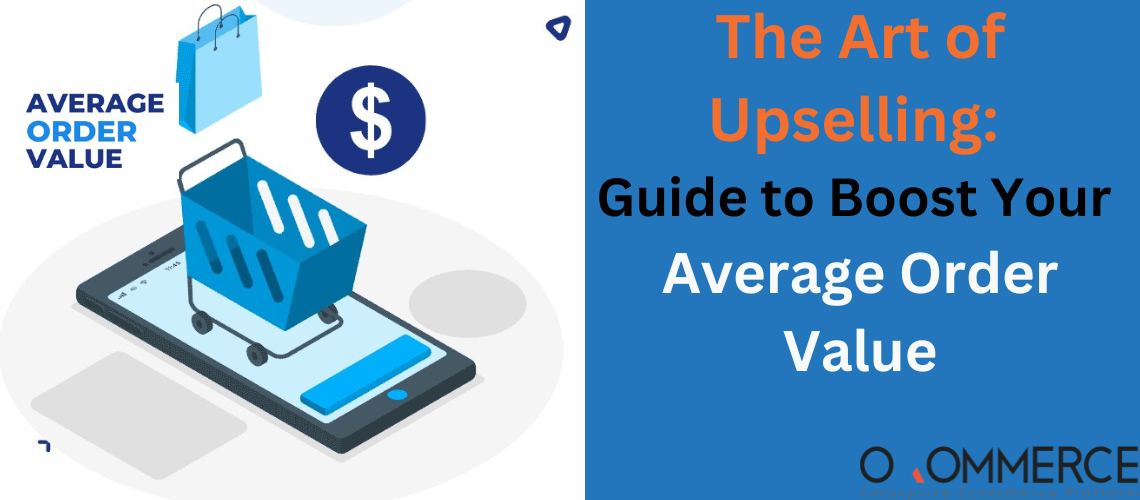NFTs & E-commerce- The Future Of Digital Collectibles
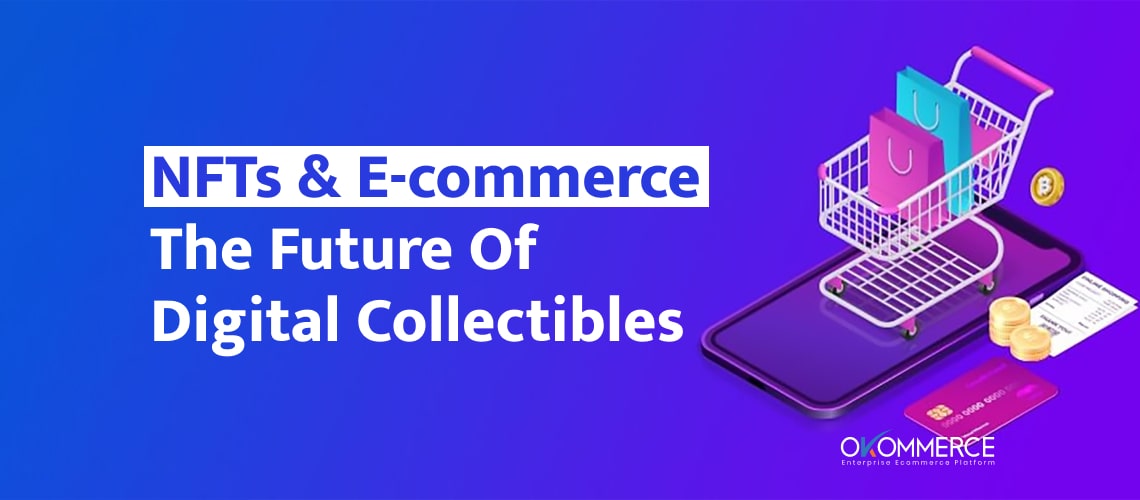
The rise of NFTs has captured the art world's attention and the tech and business communities. With more and more people seeking unique digital assets, NFTs have become a popular way to prove ownership of everything from memes to virtual real estate.
The potential of NFTs in e-commerce is vast. With the ability to create one-of-a-kind digital collectables, businesses and creators can tap into a new revenue stream, offering their customers something unique and valuable. This opens up possibilities for new types of merchandise and products, ranging from digital fashion and accessories to virtual experiences and games.
In addition to offering new revenue streams, NFTs can transform how we interact with digital content. With NFTs, creators can attach unique properties to their digital creations, such as limited edition releases, unlockable content, and even royalties for future sales. This provides a new level of authenticity and transparency to digital ownership, creating a sense of exclusivity and value for customers.
However, as with any emerging technology, there are still some challenges and limitations to consider. One of the main criticisms of NFTs is their potential impact on the environment due to the energy-intensive process of verifying transactions on the blockchain. There are also concerns about the potential for fraud and the need for greater regulation to ensure that NFTs are used ethically and legally.
Despite these challenges, the potential of NFTs in e-commerce is undeniable. With their ability to offer unique, verifiable digital assets, NFTs can transform how we think about digital ownership and the online marketplace.
What Are NFTs For The Retail Industry?

NFTs, or non-fungible tokens, have the potential to revolutionize the retail industry by creating a new type of digital ownership and collectables market. In traditional retail, consumers typically purchase physical products such as clothing, electronics, and home goods. However, with the rise of e-commerce and digital content, there is an increasing demand for unique digital assets that can be owned and traded.
NFTs provide a solution to this demand by allowing for the creation and sale of one-of-a-kind digital collectables verified on a blockchain. These digital assets range from art and music to virtual real estate and tweets. By attaching a unique token to a digital asset, NFTs allow for proof of ownership and scarcity, creating a sense of value and exclusivity for collectors.
NFTs offer a new revenue stream and marketing opportunity for the retail industry. Brands and retailers can create and sell their NFTs, offering customers a unique digital product tied to their brand. This could range from digital fashion accessories like virtual sneakers and bags to exclusive virtual experiences or real estate.
NFTs also offer the potential for new marketing opportunities, as they provide a new way for brands to engage with their customers. For example, a brand could release a limited edition NFT collection that includes exclusive virtual items such as clothing or accessories and then offer these items as a prize or reward for loyal customers.
In addition to providing new revenue streams and marketing opportunities, NFTs also offer a new way for retailers to interact with their customers. Retailers can create deeper customer engagement and loyalty by offering unique digital assets. This could include offering special discounts or access to exclusive content for customers who own a specific NFT.
NFTs offer a new way for retailers to tap into the growing demand for unique digital assets and create a new digital ownership market. While there are still some challenges and limitations to consider, the potential of NFTs in the retail industry is vast. We expect more brands and retailers to experiment with this new technology in the coming years.
How Can NFTs Influence The E-commerce Industry?
NFTs, or non-fungible tokens, have the potential to significantly influence the e-commerce industry by introducing a new paradigm of digital ownership and collectables. Here are some ways in which NFTs can influence the e-commerce industry:
Creation of Unique and Valuable Digital Assets
NFTs allow creators to mint unique and valuable digital assets, such as digital art or virtual real estate, that can be owned and traded like physical assets. This creates a new market for digital goods, which can be monetized in new ways. NFTs allow creators to add value to their digital products by attaching a unique identifier that proves ownership and authenticity. This can increase the value and demand for these digital products, which can be sold for significant sums.
Redefining Digital Ownership
NFTs offer a new paradigm of digital ownership, where users can truly own and control their digital assets. This can change how we think about digital goods, making them more valuable and significant. NFTs allow users to claim ownership of digital goods in a previously impossible way. This can lead to increased engagement and investment in digital goods and a shift in how we value and think about them.
Democratization of Digital Markets
FTs can democratize digital markets by providing a new way for creators to monetize their work and bypass traditional gatekeepers. This can empower creators and provide new opportunities for smaller artists, musicians, and other content creators to monetize their work. NFTs allow creators to bypass traditional intermediaries such as galleries, record labels, and publishers and directly sell their digital goods to their fans and supporters. This can reduce the power imbalance between creators and gatekeepers and enable a more open and democratic digital marketplace.
Expansion of E-commerce into Virtual and Gaming Worlds
NFTs can enable e-commerce businesses to expand into virtual and gaming worlds, creating new opportunities for monetization and engagement with customers. Virtual and gaming worlds are becoming increasingly popular. NFTs can enable e-commerce businesses to tap into these markets and offer gamers and enthusiasts unique digital products and experiences. This can expand the reach and revenue potential of e-commerce businesses and create new growth opportunities.
Enhancing Customer Engagement
NFTs can enhance customer engagement by creating unique, exclusive digital experiences that cannot be replicated. This can increase customer loyalty and satisfaction and create new revenue streams for businesses. By offering NFTs that provide exclusive content, access, and experiences, businesses can create a sense of exclusivity and scarcity that can drive customer engagement and sales.
Advancing Sustainability
NFTs can promote sustainability by reducing waste and using digital goods instead of physical ones. This can reduce the environmental impact of e-commerce and create new opportunities for businesses to promote sustainability. NFTs enable creating and owning unique digital goods, reducing the need for physical goods that require resources and energy to produce and transport. This can lead to a more sustainable e-commerce industry that relies less on physical goods and resources.
Are NFTs The Future Of E-commerce?
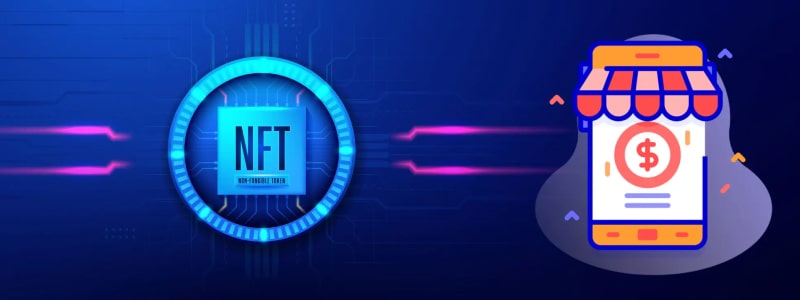
It's difficult to say definitively whether NFTs are the future of e-commerce. The technology is still in its early stages, and many factors will influence its growth and adoption. However, NFTs do have the potential to significantly influence and shape the e-commerce industry in the coming years.
NFTs offer a new way of thinking about digital ownership and collectables, which can create new markets for digital goods and expand the reach and revenue potential of e-commerce businesses. NFTs also have the potential to democratize digital markets, empowering creators and content owners to monetize their work directly and bypass traditional intermediaries.
However, there are also challenges and limitations to adopting NFTs in e-commerce. For example, technology is still relatively new and complex, which can create barriers to entry for businesses and consumers. Additionally, there are concerns about the environmental impact of NFTs, as they rely on blockchain technology that requires significant energy consumption.
Overall, while NFTs have the potential to influence the e-commerce industry significantly, it remains to be seen whether they will become the dominant paradigm for digital ownership and collectables. However, as technology evolves and more businesses experiment with NFTs, we expect to see new use cases and applications emerge, creating a more dynamic and diverse e-commerce landscape.
Okommerce is a feature-rich & leading enterprise e-commerce platform. If you own a large-scale business or plan to expand, Commerce can help you with great enterprise ecommerce solutions. Employ this platform to operate your e-commerce business properly. If you are looking for a reliable, secure, and budget-friendly eCommerce platform, get Okommerce today.

